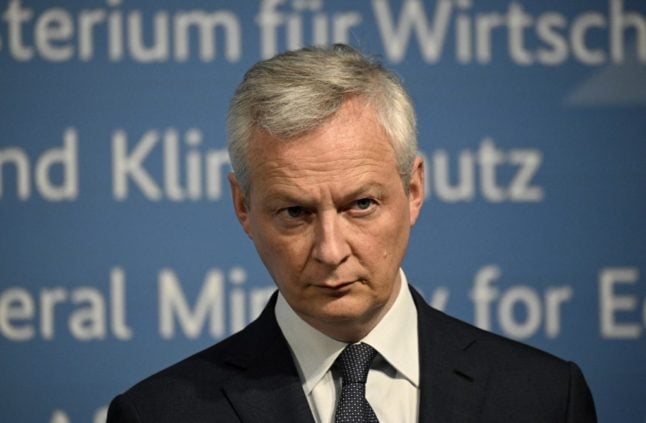France and Germany are preparing for a cut in Russian gas deliveries, France’s economy minister said on Thursday, as Russian President Vladimir Putin warned Moscow will turn off the taps for those who refuse to pay in rubles.
“On the sanctions against Russia, we will not accept the payment of gas in any other currency than stated in the contract,” said Bruno Le Maire following talks in Berlin with his German counterpart Robert Habeck.
“There could be a situation tomorrow in which there is no longer any Russian gas. It’s up to us to prepare for these scenarios and we are preparing.”
On Tuesday the head of France’s main gas distribution network, Laurence Poirier-Dietz, said the government may be required to pass a load-shedding decree, in which parts of the country have gas cut off on a rotating basis to ration supply. Hospitals, schools and retirement homes would be spared.
“We have enough gas coming from other sources and supplies to get by until next winter,” she said in an interview with Sud-Ouest.
“The question will be asked about how to fill reserve stocks during the summer.”
French newspaper Les Echos report that filling the reserve stocks would cost in the region of €10 billion.
France has the option of importing gas from other countries like Norway, Libya or Azerbaijan. It also has its own supplies of subterranean gas in the northern département of Pas-de-Calais and a number of methane plants, the biggest of which is in Seine-et-Marne.
“We can try to stimulate investment and double production capacity,” said Carole Mathieu a researcher with the French Institute of International Relations, during an interview with France Info. “That would bring us to 40 billion cubic metres at the European level, but Russia produced 155 billion cubic metres last year. There is work to do.”
The French government said that load-shedding would be a last resort.
Earlier in March, Prime Minister Jean Castex announced that the government would seek to end French dependency on Russian gas and oil supplies by 2027.



 Please whitelist us to continue reading.
Please whitelist us to continue reading.
Member comments